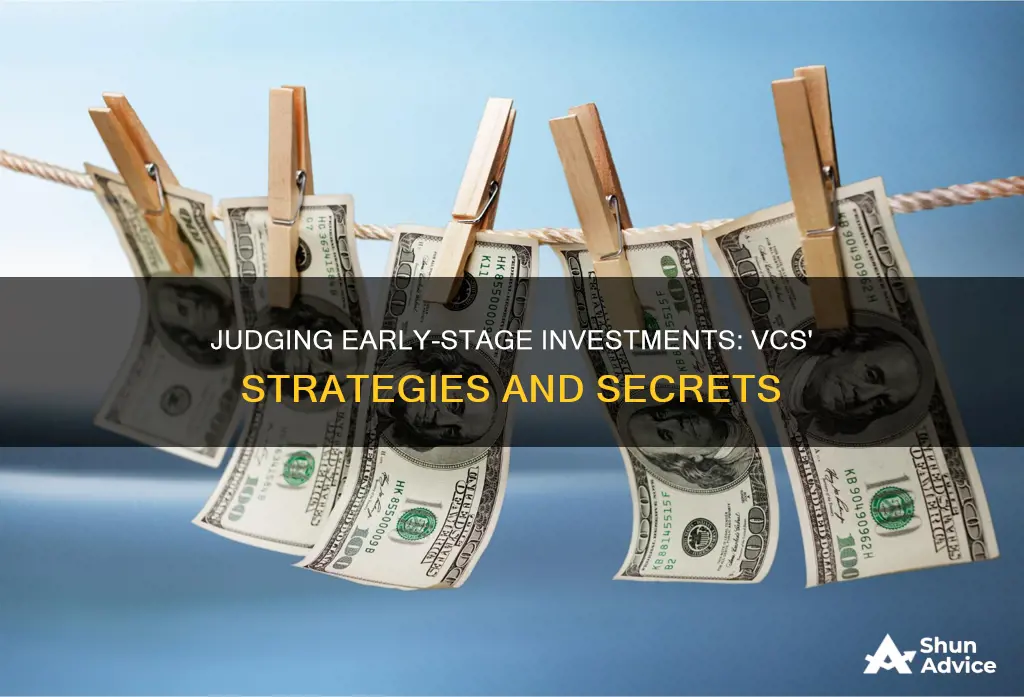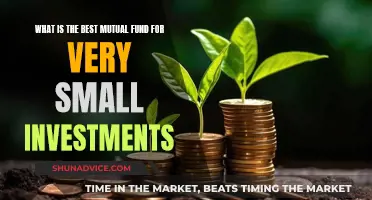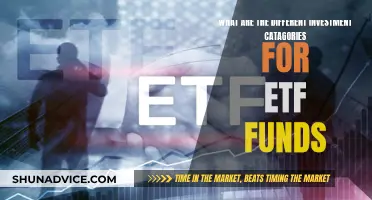
Venture capital (VC) funding is a sought-after financing option for entrepreneurs. VC funds are controlled by venture capitalists, who are a small group of individuals or entities pooling money from multiple investors to help fund companies with high growth potential. In exchange for their investment, VCs take equity or an ownership stake in the company they invest in.
VCs are interested in the growth potential of a company, the strength of its management team, and the uniqueness of its products or services. They also look at whether the company has a minimum viable product (MVP), a unique value proposition, an attractive economic model, scalability, and momentum.
The process of securing VC funding typically involves five steps: having a great business idea, creating a pitch deck, attending meetings with VCs, undergoing due diligence, and agreeing on terms and receiving funding.
VC funding is crucial for startups as it helps them develop groundbreaking technologies and disruptive business models, creating significant employment opportunities and contributing to economic dynamism.
| Characteristics | Values |
|---|---|
| Company maturity | High growth potential |
| Investor risk tolerance | High |
| Management team | Strong |
| Product/service | Unique, appealing |
| Business model | Viable |
| Market problem | Clearly defined |
| Target market | Clearly defined |
| Differentiation from competition | Clear |
| Investment type and purpose | Clearly defined |
| Business idea testing | Evidence of success |
| Revenue | Positive cash flow |
What You'll Learn

Growth potential
Scalability and Market Potential
VCs look for businesses with the potential to scale quickly and dominate a market. This typically involves evaluating the size of the target market and the business's ability to serve it. A large market size indicates greater demand and, therefore, more opportunities for growth.
Long-Term Profitability
The ability to generate long-term profits is crucial. VCs want to see a clear path to monetisation and evidence that the business can deliver consistent revenue. This is particularly important for early-stage investments, as there is a higher risk of failure.
Milestones and Traction
Early-stage startups need to demonstrate promising growth potential and a clear trajectory towards becoming a well-established business. VCs look for startups that have achieved significant milestones and gained traction in their target market. This includes factors such as customer acquisition, sales growth, and user engagement.
Team Capability
The capability and track record of the management team are also critical factors. VCs want to invest in teams with a history of success and the ability to drive growth. The team's expertise, experience, and network can significantly impact the company's potential for expansion.
Innovation and Differentiation
VCs are attracted to startups with innovative business models, unique value propositions, and strong differentiation from their competitors. This can create a competitive advantage and increase the likelihood of success.
Network and Connections
Startups with strong industry connections and a solid network can leverage these to their advantage when seeking VC investments. A warm introduction through a mutual connection can be more effective than a cold approach.
Due Diligence
Conducting thorough due diligence is essential for VCs. This involves evaluating the founding team, product, industry, target market, financial viability, and other key aspects of the business. A comprehensive due diligence process helps VCs make informed investment decisions and assess the growth potential of the startup.
In summary, growth potential is a critical factor in VC investment decisions. VCs seek startups with strong market potential, scalability, innovative business models, and capable leadership. Demonstrating traction, milestones, and a clear path to monetisation are key to convincing VCs of the growth potential of an early-stage startup.
Paying Interest to Investors: A Guide to Investment Fund Strategies
You may want to see also

Management team strength
The management team is the most important factor that venture capitalists (VCs) consider when deciding whether to invest in a business. They are looking for a capable and experienced management team that can execute the business plan. VCs are not looking for "green" managers; they want to see executives who have successfully built businesses that have generated high returns for investors.
Businesses seeking VC investment should be able to present a list of experienced, qualified people who will play central roles in the company's development. If the business lacks talented managers, it should be willing to hire them from outside. VCs would rather invest in a bad idea led by accomplished management than a great business plan supported by a team of inexperienced managers.
The management team should be able to demonstrate that they have the expertise and capability to turn the business idea into a profitable reality. They should be able to show that they have a clear understanding of the market, the target customers, and the competition. The team should also be able to present a credible business plan that outlines the company's goals, strategies, and expected outcomes.
The management team's ability to execute the business plan and make wise investments is crucial in convincing VCs to invest. They should be able to provide evidence of their credibility and viability, as well as reinforce their long-term success potential. Growth statistics and data are powerful tools in building trust with investors and demonstrating the strength of the management team.
The personality and reputation of the management team are also important factors. The team should be able to appeal to prospective customers and stakeholders, building trust and loyalty. This can be challenging for early-stage startups, as consumers are exposed to thousands of brands every day and tend to focus on those they are already loyal to. Therefore, the management team should focus on establishing their authority in a small pool before expanding their reach.
In summary, VCs place a high value on the strength of the management team when considering early-stage investments. They want to see experienced and qualified individuals who can execute the business plan, navigate challenges, and generate returns. The management team's expertise, credibility, and ability to reinforce long-term success are key factors in securing VC investment.
A Guide to Investing in Oaktree Funds
You may want to see also

Product/service appeal
When it comes to product/service appeal, VC funds are looking for something unique, innovative, and disruptive. They want to see a strong value proposition that addresses a real market need or pain point. Here are some key considerations:
- Uniqueness and Innovation: VCs look for products or services that stand out from the competition. They seek innovative solutions that disrupt the market or introduce new technologies, business models, or ways of addressing customer needs.
- Market Need and Pain Points: Your product or service should aim to solve a specific problem or address a gap in the market. Demonstrate that you have identified a genuine need or pain point among your target customers and that your offering provides a compelling solution.
- Competitive Advantage: Highlight what sets your product or service apart from the competition. This could be proprietary technology, intellectual property, a unique business model, or strong brand differentiation.
- Target Market and Customer Appeal: Clearly define your target market and customer base. Demonstrate a deep understanding of your target audience's needs, preferences, and behaviours. Show that your product or service has strong appeal to this target market and has the potential to build a loyal customer base.
- Traction and Customer Feedback: If you have a minimum viable product (MVP) or have conducted market testing, showcase any positive traction, feedback, or metrics that indicate customer interest and satisfaction. This could include user growth, retention rates, or testimonials.
- Scalability and Growth Potential: VCs look for products or services with the potential for rapid growth and scalability. Demonstrate how your offering can reach a wide audience, expand into new markets, or increase its user base significantly. Highlight any plans for future enhancements or additional revenue streams.
- Long-term Vision: While early-stage investments focus on the present, VCs also consider the long-term potential of your product or service. Share your vision for future development, including plans for continuous innovation, expansion, and staying ahead of the competition.
Remember, VC funds are looking for disruptive and innovative products or services with strong market appeal and the potential for significant growth. Demonstrate a clear understanding of your target market and showcase how your offering solves genuine customer needs or pain points.
Funding Ally Invest: A Guide to Getting Started
You may want to see also

Business model viability
VC funds will look for a unique value proposition and a solid plan for monetisation. They will want to see a large market for the business to serve and a business model aimed at generating millions in company revenue. They will also consider whether the business has a minimum viable product (MVP) and whether it has initial customers, sales or analytics showing product adoption.
The business model should demonstrate how the business intends to address at least one market pain point and show that it has the potential to develop into a vibrant company. It should be based on market research and supported by a credible plan and a capable management team.
VC funds will also consider the scalability of the business and whether it has the potential to grow and scale quickly, dominate a market and go public through an IPO. They will look for evidence of sustainable, long-term growth potential.
Retirement Fund: Investing for a Secure Future
You may want to see also

Long-term profitability
When it comes to judging early-stage investments, venture capital (VC) funds consider a variety of factors to assess the long-term profitability of a startup. Here are some key aspects they evaluate:
- Sustainable and Long-term Growth Potential: VCs scrutinize the potential for sustainable and long-term growth. They look for startups that can demonstrate a viable business model, a unique value proposition, and a large addressable market. This involves evaluating the scalability of the business, its ability to generate consistent revenue, and its potential for expansion.
- Market Traction and Customer Acquisition: VC funds assess the traction gained by the startup in its target market. They analyze metrics such as customer acquisition, retention, and growth rates. Startups with a solid customer base and evidence of market demand are more attractive for investments.
- Revenue and Monetization Strategy: Investors want to understand how the startup plans to generate revenue and monetize its products or services in the long term. A clear monetization strategy demonstrates that the business has a path to profitability and can provide returns to investors.
- Competitive Advantage and Differentiation: VCs evaluate the competitive landscape to determine if the startup has a unique selling proposition. They look for differentiated products or services that can gain a strong foothold in the market and compete effectively against existing or potential future competitors.
- Management Team and Execution Capability: The quality of the management team is crucial for long-term success. VC funds assess the expertise, experience, and track record of the founders and key personnel. They want to ensure that the team has the capabilities and skills necessary to execute the business plan and navigate challenges effectively.
- Financial Projections and Milestones: Investors examine the financial projections and milestones set by the startup. This includes evaluating revenue forecasts, break-even points, and key performance indicators (KPIs). Startups with realistic and achievable financial goals are more likely to be considered for investments.
- Risk Assessment and Mitigation Strategies: VC funds conduct a thorough risk assessment of the investment. They consider the potential challenges and obstacles the startup may face and evaluate the strategies in place to mitigate those risks. A well-thought-out risk management plan demonstrates the startup's ability to navigate uncertainties.
- Exit Strategy and Return on Investment: Investors are interested in the potential exit strategies, such as an initial public offering (IPO) or acquisition. They want to understand how they will eventually realize returns on their investments. Startups with clear exit strategies and the potential for high returns are more attractive to VC funds.
By carefully evaluating these aspects, VC funds can make informed decisions about the long-term profitability of early-stage investments. It's important to note that each VC fund may have its own specific criteria and areas of focus, but the overarching goal is to identify startups with strong growth potential and the ability to generate sustainable profits over the long term.
Mutual Fund SIPs: A Guide to Direct Investing
You may want to see also
Frequently asked questions
VCs are looking for high-growth potential and unique products or services that address a market pain point. They also consider the strength of the management team and the scalability of the business model.
Early-stage VC funding is not easy to acquire. There is a lot of competition, with thousands of new startups debuting every year. It can be challenging to get funding and even to gain the attention of venture capitalists.
Investing in early-stage companies offers investors opportunities that the stock market cannot. Startups bring a refreshing mindset to the industry and can innovate their niche. However, investing in early-stage companies is riskier than investing in public trade companies, and it takes longer to see a return on investment.
First, you need a great business idea that fits the VC investment bill: early-stage, highly scalable, and able to dominate a market and go public through an IPO. Then, you need to create a pitch deck and network to get a warm intro to a VC firm. After that, you'll have a series of meetings and due diligence checks before receiving a term sheet and funding.







